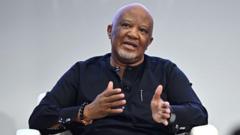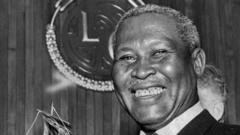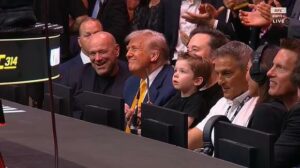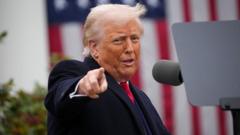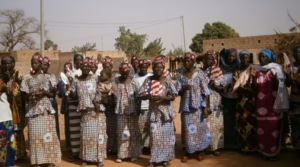President Cyril Ramaphosa's efforts to attract investment from Elon Musk face challenges due to controversial Black ownership laws. A government official proposes a new licensing approach focused on community investment rather than ownership stakes to facilitate Starlink's entry into the market.
South Africa Navigates Musk's Satellite Ambitions Amid Controversy

South Africa Navigates Musk's Satellite Ambitions Amid Controversy
Tension arises as South Africa tries to accommodate Elon Musk's Starlink while addressing ownership issues rooted in apartheid.
In a politically charged atmosphere, South Africa is attempting to bridge the gap between billionaire Elon Musk and local ownership laws that he deems discriminatory. President Cyril Ramaphosa is eager for Musk, a native son, to redirect some of his wealth into his home country, yet Musk's criticism of the government’s demands for Black ownership has stalled these efforts. The contentious law mandates that foreign companies such as Musk's Starlink must cede equity to Black individuals or those who suffered discrimination from apartheid.
In response to these challenges, telecommunications official Solly Malatsi is preparing to introduce a directive that would allow satellite internet providers to instead acquire licenses through investments in underserved communities. This strategic shift aims to facilitate the entry of Starlink and similar firms, potentially sidestepping the contentious equity transfer that has been central to Musk's objections.
However, Malatsi faces scrutiny from political adversaries who argue that this alternative undermines efforts to rectify the racial inequalities entrenched during apartheid. Critics accuse him of catering to Musk, who, having left South Africa as a teenager, has had little engagement with his homeland in recent years. As this contentious dialogue unfolds, the outcome could set a precedent for foreign investment and ownership laws in the country, highlighting the struggle between economic opportunity and historical justice.







